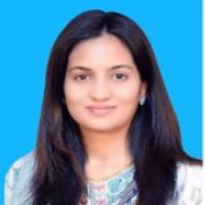
Rabiya Ghafoor
Work place: Department of Software Engineering, Foundation University Islamabad, Pakistan
E-mail: rabiya.ghafoor@fui.edu.pk
Website: https://orcid.org/ 0009-0003-0368-2393
Research Interests:
Biography
Rabiya Ghafoor is currently working as a Lecturer in the Department of Software Engineering at Foundation University Islamabad. She holds an MS degree in Computer Science from Foundation University and a BS degree in Computer Science from the University of Engineering and Technology (UET), Lahore. Her research interests include computer vision, image processing, and data analytics.
Author Articles
Emerging Themes and Research Directions in MOOCs and Micro-credentials
By K. S. Savita Pradeep Isawasan Muhammad Akmal Hakim Ahmad Asmawi Muhammad Shaheen Rabiya Ghafoor
DOI: https://doi.org/10.5815/ijmecs.2025.06.07, Pub. Date: 8 Dec. 2025
Massive Open Online Courses (MOOCs) and micro-credentials have emerged as key innovations in modern education, offering scalable, flexible access to learning and skill development. Despite their potential, challenges such as low learner engagement, high dropout rates, and uncertainty over the value of digital credentials remain. This study analyzes 3,743 publications from 1970 to 2024 using bibliometric and text analytics to uncover research trends, influential studies, and dominant themes in the field. Results show a surge in research from 2014 to 2020 driven by digital technology adoption and the COVID-19 pandemic followed by a decline as hybrid learning models became normalized. Key themes include learner motivation, engagement strategies, digital badges, and ethical concerns tied to data-driven education. While advancements in learning analytics and personalization show promise, the study underscores the need for standardized credentialing, scalable engagement frameworks, and ethical governance in online education. Critical gaps remain, particularly in evaluating the long-term impact of micro-credentials on employability and understanding adoption differences across regions and socio-economic groups. Limitations include reliance on the Web of Science and author-provided keywords, which may narrow the scope. Despite this, the study provides a systematic overview and offers practical insights for improving MOOCs and micro-credentials as tools for lifelong learning and global educational equity.
[...] Read more.Other Articles
Subscribe to receive issue release notifications and newsletters from MECS Press journals